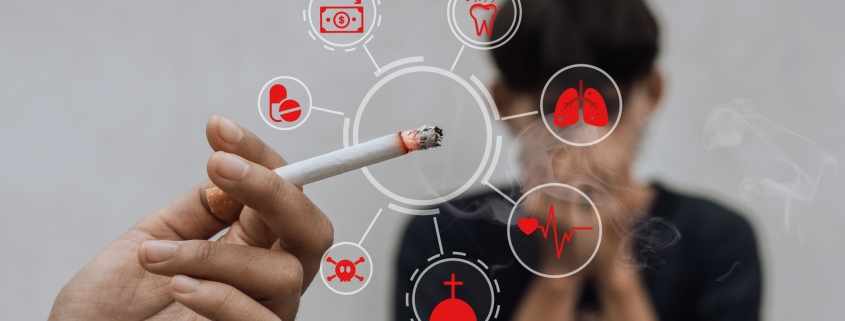The Impact of Smoking on Dental Health
Smoking is a prevalent habit that has detrimental effects on overall health, including significant consequences for dental health. Whether it’s cigarettes, cigars, or smokeless tobacco, the harmful chemicals in tobacco products can wreak havoc on the mouth and teeth. In this article, we will explore the impact of smoking on dental health and shed light on the importance of quitting this harmful habit for a healthier smile.
The Link between Smoking and Dental Problems
Gum Disease:
Smoking is one of the most significant risk factors for gum disease, also known as periodontal disease. The chemicals in tobacco products impair the blood flow to the gums, weakening the immune system’s ability to fight off infections. This leads to inflammation, gum recession, and eventual tooth loss if left untreated.
One of the most visible effects of smoking is tooth discoloration. The tar and nicotine in tobacco products can stain the enamel, giving teeth a yellowish or brownish appearance. Over time, these stains become difficult to remove with regular brushing, leading to an unattractive and discolored smile.
Smoking contributes to chronic bad breath, also known as halitosis. The chemicals in tobacco linger in the mouth and lungs, leading to foul-smelling breath that can be difficult to mask with mints or mouthwash.
Smoking slows down the body’s natural healing processes, which can be particularly problematic after dental procedures such as extractions, implants, or gum surgeries. Smokers may experience delayed healing, increased risk of infection, and complications after dental interventions.
Smoking is a leading cause of oral cancer, affecting the lips, tongue, cheeks, and throat. The risk of developing oral cancer is significantly higher for smokers compared to non-smokers, making it a life-threatening consequence of this habit.
Protecting Dental Health:
Quitting smoking can be challenging, but it is possible with the right support. Speak to your healthcare provider or a smoking cessation specialist for guidance and resources to help you quit.
If you are a smoker, maintaining excellent oral hygiene is crucial. Brush your teeth at least twice a day with fluoride toothpaste, floss daily, and visit your dentist regularly for check-ups and cleanings.
Nicotine replacement therapy, such as patches, gum, or lozenges, can help ease withdrawal symptoms and cravings during the quitting process.
Substitute smoking with healthier habits, such as chewing sugarless gum, snacking on crunchy fruits and vegetables, or engaging in physical activities to reduce stress.
Learn about the harmful effects of smoking on dental health and overall well-being. Understanding the risks can provide added motivation to quit this harmful habit.
Smoking has severe implications for dental health, causing gum disease, tooth discoloration, bad breath, slower healing, and increasing the risk of oral cancer. Quitting smoking is the most significant step towards protecting your dental health and overall well-being. The benefits of quitting extend beyond a healthier mouth and teeth, leading to improved cardiovascular health, enhanced lung function, and reduced risk of various cancers. Take charge of your dental health by saying goodbye to smoking, and embrace a brighter and healthier smile for life. Remember, it’s never too late to quit, and your smile will thank you for it.

